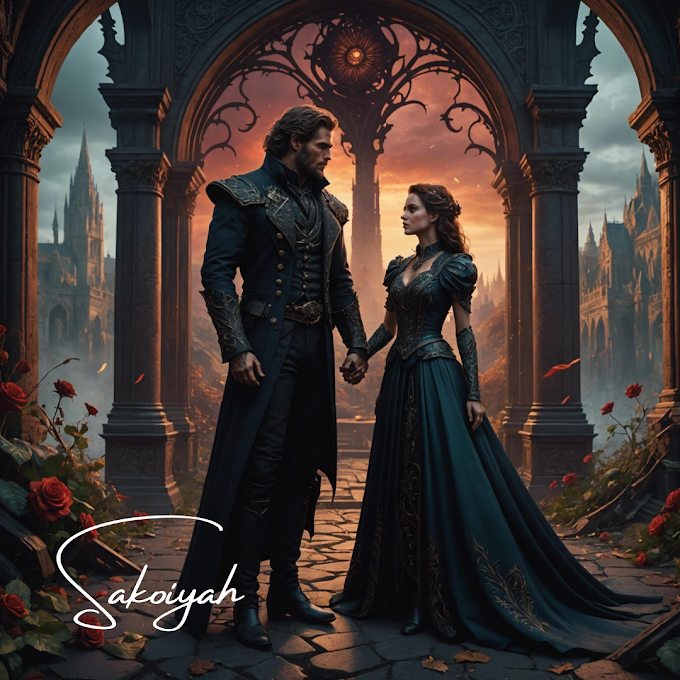This Blog Post is about Character Interviews for Better Storytelling.
This blog post is an all-about Character Interviews for Better Storytelling.
Creating compelling, multi-dimensional characters is one of the most important aspects of storytelling. Characters are the heart of any narrative, driving the plot forward and engaging readers on an emotional level. One of the most effective tools for developing rich and believable characters is the character interview. But what exactly is a character interview, why does your story need one, and how can you use it to develop your characters? This blog post will answer these questions and guide you through the process of conducting a character interview to enhance your storytelling.
What Is a Character Interview?
A character interview is a tool that writers use to gain a deeper
understanding of their characters. It involves posing a series of questions to
your character, as if you were interviewing them, to explore their thoughts,
motivations, background, and personality. The idea is to get inside your
character’s head and understand them on a deeper level, beyond what is
immediately apparent in the story.
Key Elements of a Character Interview:
- Background Information: Questions about the character’s
past, upbringing, and experiences that have shaped who they are.
- Personality Traits: Questions that reveal the
character’s quirks, habits, strengths, and weaknesses.
- Motivations and Desires: Questions that uncover what
drives the character, their goals, and what they are willing to do to
achieve them.
- Relationships: Questions about the character’s
relationships with others, including family, friends, and enemies.
- Fears and Flaws: Questions that explore the
character’s deepest fears, insecurities, and moral weaknesses.
- Future Aspirations: Questions that delve into the
character’s hopes, dreams, and where they see themselves in the future.
A character interview can be as formal or informal as you like. It can
take the form of a structured list of questions, a free-flowing conversation,
or even a written dialogue between you and the character. The goal is to
explore your character’s inner world in as much detail as possible.
Why Does Your Story Need a Character Interview?
Deepens Character Understanding
A character interview allows you to get to know your characters
intimately. By answering questions about their past, motivations, and desires,
you can develop a more nuanced understanding of who they are. This
understanding will help you write characters that feel real and relatable to
your readers.
Enhances Character Consistency
One of the challenges of writing is maintaining character consistency
throughout the story. A character interview helps you establish clear
guidelines for your character’s behavior, making it easier to keep them
consistent. When you know your character’s motivations and personality traits,
you can ensure they act in ways that align with these characteristics.
Uncovers Hidden Depths
Characters, like real people, have layers. A character interview can help
you uncover these layers, revealing aspects of your character that may not be
immediately apparent. This can lead to more complex and interesting characters
that surprise and engage your readers.
Drives Plot Development
Characters drive the plot of your story. By understanding your characters
better, you can create more compelling and believable plot developments. A
character interview can reveal potential conflicts, desires, and goals that can
be used to drive the story forward.
Improves Dialogue
Dialogue is an important tool for revealing character. A character
interview can help you develop your character’s voice, making their dialogue
more distinctive and authentic. When you know how your character thinks and
speaks, you can write dialogue that feels natural and true to who they are.
Enhances Emotional Impact
Readers connect with characters on an emotional level. A well-conducted
character interview allows you to explore your character’s emotions, making it
easier to write scenes that resonate with readers. When you understand what
your character cares about, you can create moments that are emotionally
powerful and impactful.
Helps Resolve Writer’s Block
If you’re stuck in your writing, a character interview can help you
overcome writer’s block. By delving into your character’s inner world, you can
find new ideas and directions for your story. Sometimes, understanding your
character better is all you need to break through a creative block.
How to Use a Character Interview to Develop
Your Characters
Now that you understand what a character interview is and why it’s
important, let’s explore how you can use it to develop your characters.
1. Prepare a List of Questions
The first step in conducting a character interview is to prepare a list
of questions. These questions should cover a range of topics, from your
character’s background to their personality traits and motivations. Here are
some sample questions to get you started:
Background Information
- Where were you born, and what
was your childhood like?
- Who were your parents, and what
was your relationship with them?
- What significant events shaped
who you are today?
Personality Traits
- How would you describe your
personality in three words?
- What are your greatest strengths
and weaknesses?
- What are your pet peeves or
things that annoy you?
Motivations and Desires
- What do you want more than
anything else in the world?
- What are you willing to do to
achieve your goals?
- What are your biggest fears or
obstacles in achieving your desires?
Relationships
- Who are the most important
people in your life, and why?
- How do you typically interact
with others?
- Who do you consider your enemies
or rivals?
Fears and Flaws
- What are you most afraid of, and
how do you cope with that fear?
- What are your moral weaknesses
or flaws?
- How do these fears and flaws
affect your actions and decisions?
Future Aspirations
- Where do you see yourself in
five or ten years?
- What are your dreams for the
future?
- How do you plan to achieve your
long-term goals?
You can customize these questions to fit your story and character. The
key is to ask open-ended questions that encourage detailed and thoughtful
responses.
2. Conduct the Interview
Once you have your questions prepared, it’s time to conduct the
interview. This can be done in several ways:
Written Interview
Write out the questions and answer them in the character’s voice. This
can be done as a simple Q&A or as a more freeform monologue where the
character speaks their thoughts.
Dialogue Format
Write the interview as a dialogue between you (the author) and the
character. This can be a fun way to explore the character’s personality and see
how they respond to different questions.
Stream of Consciousness
Let the character “speak” freely, writing down whatever comes to mind as
they respond to the questions. This can reveal unexpected insights into the
character’s thoughts and feelings.
Role-Playing
If you’re working on a collaborative project or want to engage more
deeply with your character, you can role-play the interview, either alone or
with a partner. Speak as the character and answer the questions verbally,
paying attention to how you naturally respond.
The format you choose will depend on your writing style and what you’re
most comfortable with. The goal is to create an environment where your
character can “speak” freely, revealing their inner world.
3. Analyze the Responses
After conducting the interview, take some time to analyze the responses.
Look for patterns, contradictions, or unexpected insights that can help you
understand your character better. Ask yourself the following questions:
Consistency
Are the character’s responses consistent with their actions in the story?
If not, why?
Depth
Do the responses reveal hidden depths or complexities in the character?
Motivation
How do the character’s desires and fears drive their actions in the
story?
Conflict
What internal or external conflicts arise from the character’s responses?
Growth
How might the character change or evolve based on what you’ve learned
from the interview?
Analyzing the interview can provide valuable insights into your
character’s development and help you make more informed decisions about their
role in the story.
4. Apply the Insights to Your Writing
The final step is to apply the insights from the character interview to
your writing. Here are some ways to do that:
Refine Character Arcs
Use the interview responses to refine your character’s arc, ensuring that
their growth and development are consistent with their motivations and desires.
Enhance Dialogue
Incorporate the character’s voice and personality traits into their
dialogue, making it more authentic and distinctive.
Deepen Relationships
Explore the character’s relationships with others based on the insights
from the interview, adding complexity and depth to these interactions.
Drive Plot Development
Use the character’s goals, fears, and conflicts to drive the plot
forward, creating tension and drama that feels natural and organic.
Add Layers
Incorporate the character’s inner world into the narrative, adding layers
of meaning and emotion to the story.
By applying these insights, you can create characters that feel real,
relatable, and compelling to your readers.
The Power of the Character Interview
A character interview is a powerful tool for developing
multi-dimensional, believable characters that resonate with readers. By taking
the time to “interview” your characters, you can gain a deeper understanding of
their motivations, desires, fears, and personality traits. This understanding
can enhance every aspect of your writing, from character arcs and dialogue to
plot development and emotional impact.
Whether you’re writing a novel, short story, or screenplay, incorporating a character interview into your creative process can elevate your storytelling and help you create characters that leave a lasting impression. So, the next time you’re developing a character, consider sitting down for an interview—you might be surprised by what you discover.





.png)

.png)




0 Comments